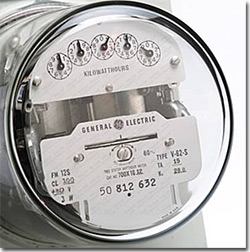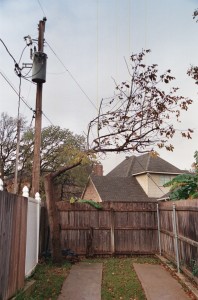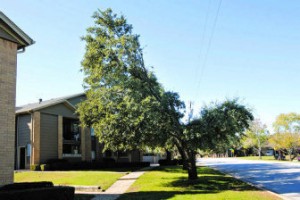Powerless against the power company
# # #
My Open Letter to Oncor Electric Delivery:
Celeste Bird says she cannot communicate successfully with anyone at Oncor Electric Delivery about the repeated power outages in her Grapevine, Texas neighborhood.
Even before the recent cold weather and heavy snow made the problem worse, she says, the power regularly went out for at least half the neighbors on her street.
“You have to work hard to even get a person at Oncor, and they won’t tell you anything,” Bird said. When she does reach someone, she says, she gets a “from-the-book answer saying maybe next time they will check into it.”
Many complained this month that they couldn’t get information from Oncor about when power would be restored after snow and wind caused half a million residences and businesses to go without electricity, some for an extended period.
These days, with emerging technologies such as Facebook and Twitter, it’s easier than ever to communicate with customers — if you want to. So on behalf of Bird, her neighbors and many others, The Watchdog last week wrote an open letter:
Dear Oncor,
What do you do now to communicate with thousands of frustrated customers who call in with complaints, specifically about power outages and also recent high bills?
From my mail, it appears that these recent weeks are among the most difficult times for Oncor in recent years. I hear about more complaints which you are receiving than ever more. More requests for meter re-reads, questions about smart meters, theories of no-show meter readers and inaccurate meters.
I sense a lot of frustration among your customers. They say it’s difficult to get information from you. They wonder, because they are dealing with an automated phone system, if complaints are received properly. They don’t like the lack of human contact, the inability to give feedback. They don’t like NOT knowing if a power restoration crew is scheduled, when it will come, when power could come back on.
The public wants you to be more accessible, more transparent and more available to help them in their times of need. It seems like you aren’t using technology as best you could. In this age of fast-moving communication, it would seem that Oncor could do more than use automated phone lines to take information.
I wonder why you don’t make this information available on a Web site so we can check the latest. This, as you know, is the most basic form of easily distributed rapid information — for free — and customers are clamoring for it.
I received calls from people who wanted to know how they could find out if their power would be turned on? What do I tell them?
I can’t think of another product we buy each month that we understand less about how you bill and whether the price and quantity are correct. People are supposed to trust your systems and equipment. Yet people feel a loss of power and control of their lives when it comes to electrical power.
The Watchdog
Oncor spokeswoman Carol Peters responded.
She checked Oncor records and confirmed that Bird has complained many times, even to the Public Utility Commission of Texas. But, she said, “there’s no way for us to tell a customer when their power is going to be turned on.”
The great snowstorm of 2010 was Oncor’s worst winter storm ever. Complaints were up, but that was not unexpected, she said.
Rather than dwell on Oncor’s recent unpleasantness, Peters wanted to focus on the future. She promised that greater transparency is coming to Texas’ largest electricity transmission company.
A new Web site is about to be unveiled by the state, working with the large transmission companies, both she and a PUC spokesman told me. Customers will be able to log on and retrieve more detailed information about their electricity usage and bills.
When is this coming?
“It should be announced fairly soon, but it will be the first step toward total visibility on your electric bill,” Peters said. “It’s almost finished.”
The second part of the transparency movement, she said, is the installation of smart meters, scheduled for completion by 2012.
When smart meters are installed, Peters said, customers won’t have to call utilities to report outages. Utilities will already know because a smart meter sends back usage information every 15 minutes.
“This is the brave new world we are heading for,” Peters said. “This is a transformative period for Oncor.”
Until the smart system is installed and while more old-fashioned methods are used, Peters said Oncor is interested in doing “anything we can to improve communication before we deploy” the new meters.
Celeste Bird says she and her Grapevine neighbors can’t wait that long, adding, “Maybe it’s time for some competition if the one choice we have for service can’t provide the type of service we pay for.”
# # #
Dave Lieber, The Watchdog columnist for The Fort Worth Star-Telegram, is the founder of Watchdog Nation. The new 2010 edition of his book, Dave Lieber’s Watchdog Nation: Bite Back When Businesses and Scammers Do You Wrong, is out. Revised and expanded, the book won two national book awards in 2009 for social change. Twitter @DaveLieber





 Visit
Visit 

